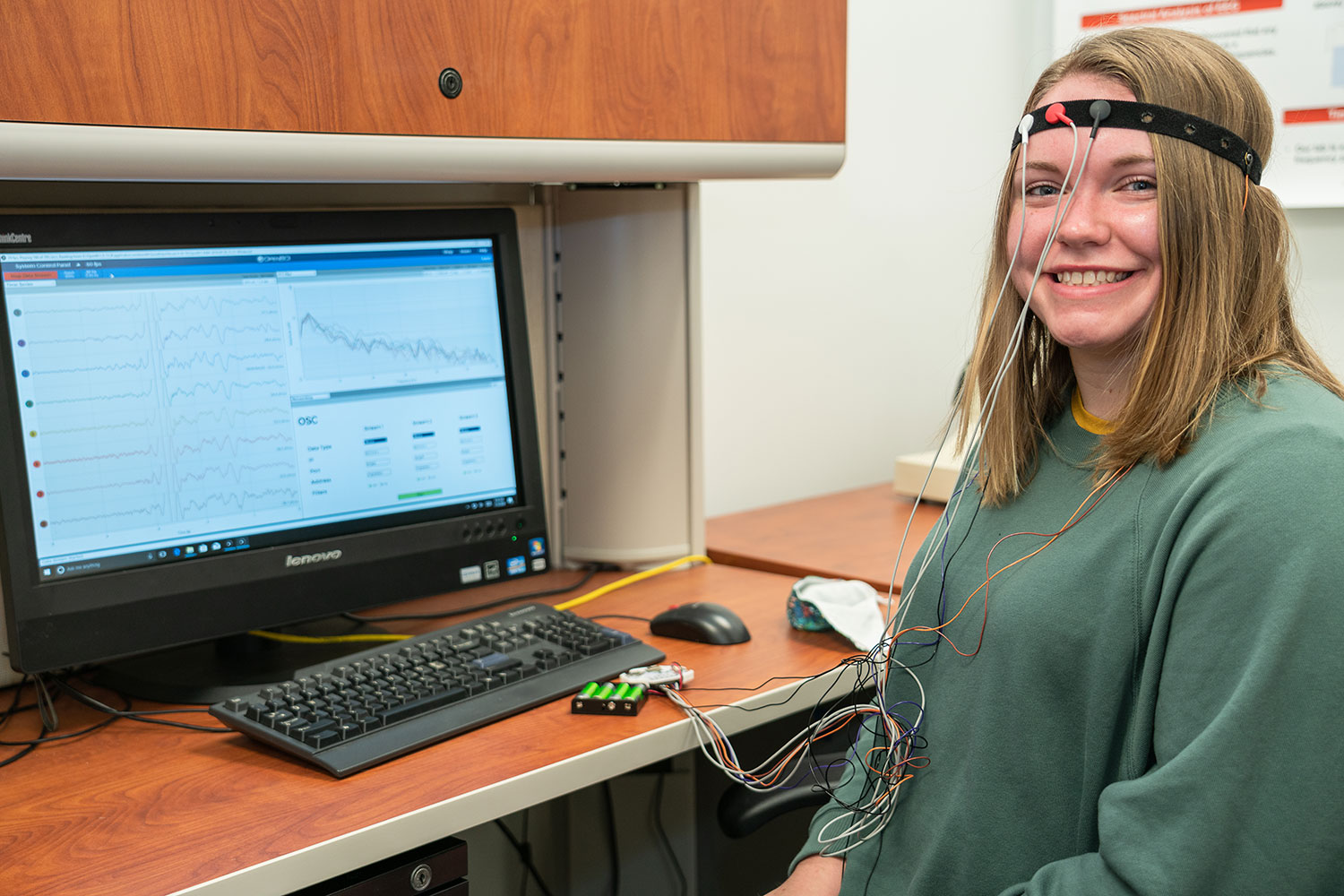Radford University
College of Humanities and Behavioral Sciences
Build a Foundation for Lifelong Learning

The College of Humanities and Behavioral Sciences offers degree programs and individual classes designed to emphasize the liberal arts as a foundation for lifelong learning. We offer a number of degrees that lead to specific career paths in public relations, media, criminal justice, counseling, technical writing and forensics. View our academic programs
Academic Departments and School

New School of Writing, Language and Literature
In August 2024, the State Council of Higher Education for Virginia (SCHEV) approved the merger of the Department of English and the Department of Foreign Languages and Literatures into the School of Writing, Language and Literature. Located in the College of Humanities and Behavioral Sciences, the new school will oversee all academic programs and curricula in languages, literatures and cultures at the university.
Research and Outreach
The College of Humanities and Behavioral Sciences supports a variety of centers and labs focused on research and outreach to enhance educational and professional opportunities for our students and the community.
Our Facility
Hemphill Hall
Our College is housed in a state-of-the-art facility that opened in 2016. Hemphill Hall is the largest academic building on campus and features many professional-quality centers, labs, research space and classrooms.

Our College in the News
-
‘An incredible blessing’: Student teachers honored with Hattie M. Strong Foundation scholarships
May 6, 2025
The scholarship helps alleviate the financial burdens students face during their student-teaching semester.

-
Radford University senior media studies major Resa Mattson mapped out much of her academic journey, frame by frame, years ago, during her early high school years.

-
When you think of the world’s most complex problems, there is a good chance at least one Radford University student has spent countless hours working to find a solution.









